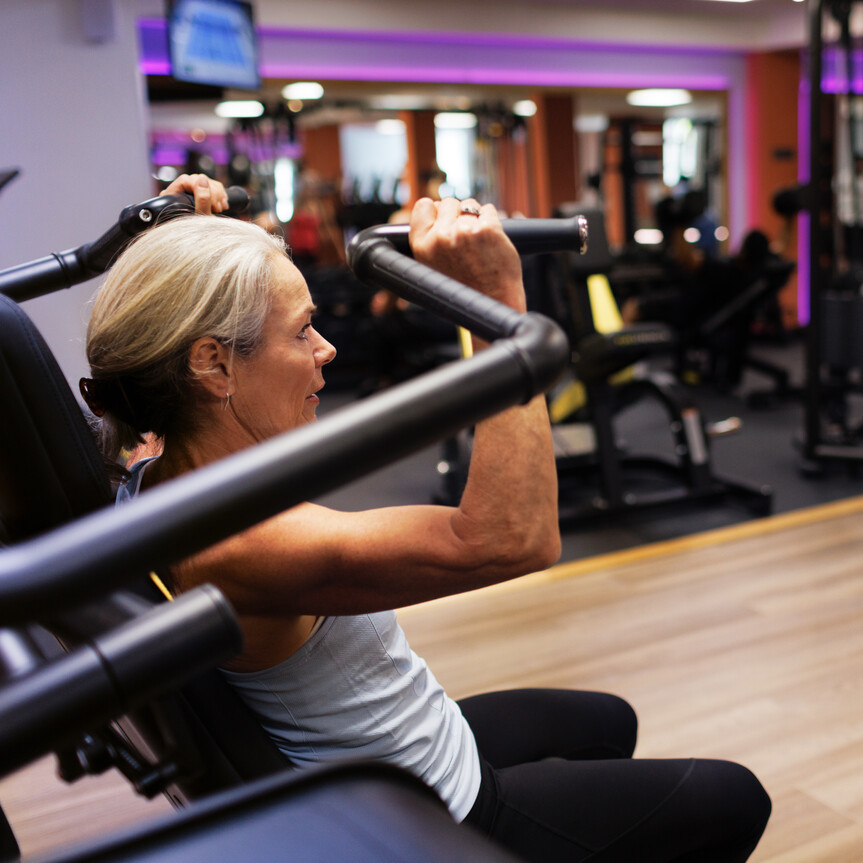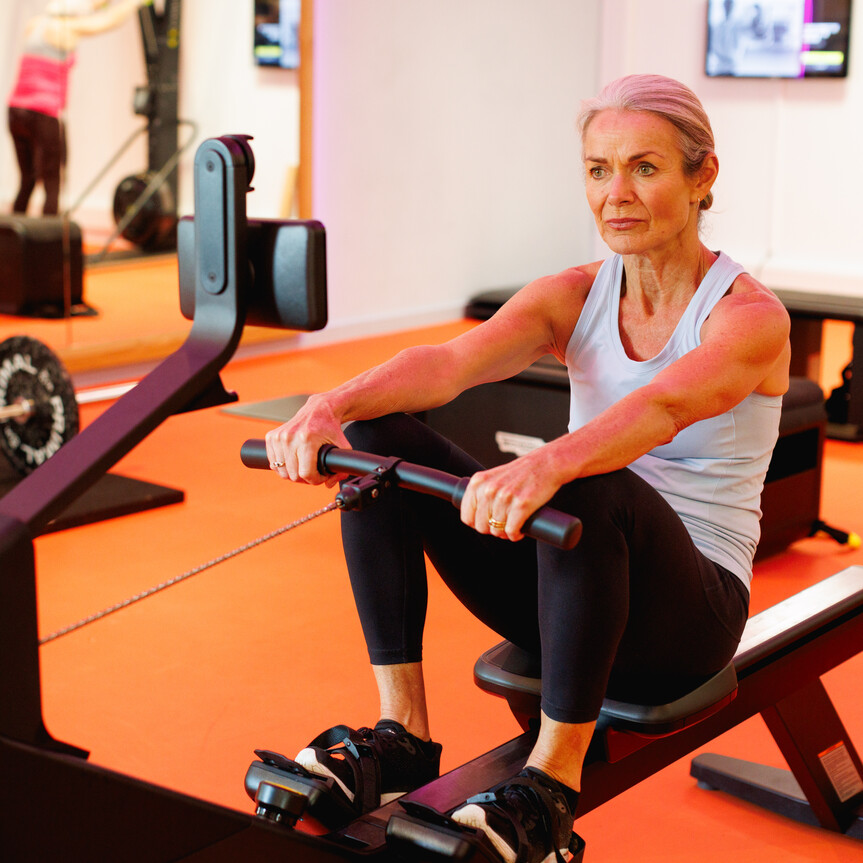Why Strength Training Matters During Menopause
Menopause can bring about many physical and emotional changes. Hormone fluctuations, energy levels can feel unpredictable and many women notice differences in their weight, muscle tone and overall health.
One of the most powerful tools we have to support our bodies is STRENGTH TRAINING. As we go through menopause, our muscle mass can decline by 3-5% per year. In fact, once we hit the age of 30 -35 our muscles naturally start to shrink (especially if you are not actively strength training).
The more muscle we keep, the easier daily tasks become. So building muscle will help you to stay both stronger AND avoid fragility as you age.

Building Lean Muscle Will Also Help:
- Manage blood sugar
- Support the joints
- Muscle helps control your body fat
- Building muscles builds bone
20% of bone loss can occur during menopause, and one of the biggest concerns in menopause is bone health. Did you know that one in three women over 50 will sustain a hip fracture, which can really affect the quality of life thereafter?
Bone mass peaks approximately age 30, and if it’s already below the ideal level, any bone loss during menopause can result in osteoporosis. Strength training places safe, controlled stress on the bones, which encourages them to grow stronger. This makes it one of the most effective ways to reduce fracture risk.
Strength Training and Joint Health
As oestrogen declines, it can affect the joints and the connective tissues which may cause pain for some women. Strength training is one of the best ways to protect your joints.
- Stronger muscles = Stronger Support, leading to reduced stress and improved stability
- Better alignment and Balance
- Mobility
You don’t need to spend hours in the gym. Two to three strength sessions per week is enough to see and feel results.

Brain Changes in Menopause & the Power of Strength Training
One of the less talked about aspects of menopause is how it affects the brain. Many women notice brain fog, difficulty in concentrating and even changes in mood, anxiety and confidence. Exercise is one of the most powerful tools to support brain health during menopause.
And again, strength training will help with muscle, bone but also stimulating BDNF (Brain Derived Neurotrophic Factor). Higher levels of BDNF are linked to better memory, sharper thinking and can protect against cognitive decline too. Ultimately, this time can be a powerful new chapter. By making strength training a consistent part of your training routine, you are investing in muscle, bone, metabolism, mood and independence.
Let’s Talk Menopause Month at The Club Company
This October, we’re hosting Let’s Talk Menopause events across our clubs, with expert talks, coffee mornings, fitness and wellness sessions, and social events for you, your families, and the men in your life.
Get involved and join us at your local club.
